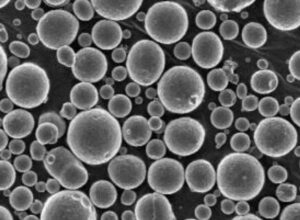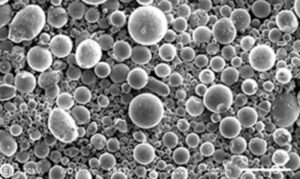Ti-6Al-4V, also known as Grade 5 titanium alloy, is one of the most popular titanium alloys used in a variety of applications. This article provides a comprehensive overview of Ti-6Al-4V, including its composition, properties, applications, specifications, pricing, handling and more.
Ti-6Al-4V Composition
Ti-6Al-4V is an alpha-beta titanium alloy containing 6% aluminum, 4% vanadium, 0.25% (maximum) iron, 0.2% (maximum) oxygen, and the remainder titanium. Here is the nominal composition of Ti-6Al-4V:
| Element | Weight % |
|---|---|
| Titanium | Balance |
| Aluminum | 5.5 – 6.75 |
| Vanadium | 3.5 – 4.5 |
| Iron | ≤ 0.3 |
| Oxygen | ≤ 0.2 |
The aluminum stabilizes and strengthens the alpha phase, while vanadium enables beta phase formation. The combination of alpha and beta phases gives Ti-6Al-4V excellent strength, corrosion resistance and workability.
Ti-6Al-4V Properties
Ti-6Al-4V has the following properties that make it advantageous for aerospace, medical, marine and other applications:
| Property | Value |
|---|---|
| Density | 4.43 g/cm3 |
| Melting Point | 1604 – 1660°C |
| Tensile Strength | 895 – 1170 MPa |
| Yield Strength | 825 – 1103 MPa |
| Elongation | 8 – 16% |
| Elastic Modulus | 114 GPa |
| Fatigue Strength | 400 – 500 MPa |
| Fracture Toughness | 55 – 115 MPa-m^1/2 |
| Corrosion Resistance | Excellent |
| Bio-compatibility | Excellent |
Key features:
- Lightweight with high strength-to-weight ratio
- Withstands extreme temperatures
- High fatigue strength
- Resistant to corrosion, acids, chlorides
- Compatible for implants and prosthetics
Ti-6Al-4V Applications
Ti-6Al-4V is used in the following major applications because of its unique combination of properties:
| Industry | Applications |
|---|---|
| Aerospace | Aircraft engine components, airframes, fasteners, hydraulic systems |
| Biomedical | Surgical implants, orthopedic and dental prosthetics |
| Marine | Propellers, offshore platform rigs, pipelines, heat exchangers |
| Chemical | Tanks, pipes, valves, pumps, reaction vessels |
| Automotive | Valves, connecting rods, suspension springs |
| Power generation | Steam turbine blades, waste incinerator parts, heat exchangers |
| Sporting goods | Golf clubs, bicycle frames, tennis rackets, hockey sticks |
Ti-6Al-4V allows designing lighter, faster and more durable components and equipment.
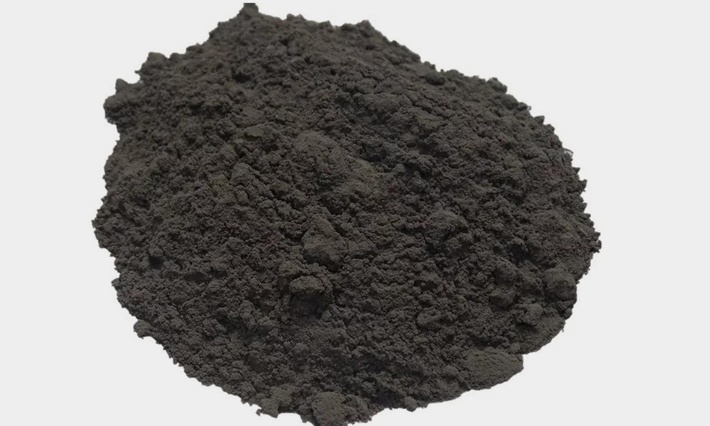
Ti-6Al-4V Specifications
Ti-6Al-4V is covered under the following specifications:
| Standard | Title |
|---|---|
| AMS 4911 | Titanium 6Al-4V alloy, annealed sheet/strip/plate |
| ASTM B348 | Titanium and titanium alloy bars and billets |
| ASTM F1472 | Wrought titanium-6aluminum-4vanadium alloy for surgical implant applications |
| ASTM F1108 | Titanium-6Aluminum-4Vanadium alloy for surgical implants |
| AMS 4928 | Investment castings, corrosion resistant steel, high strength, vacuum melted, titanium alloys |
| AMS 4965 | Titanium alloy sheet, strip and plate 6Al -4V annealed |
| MSRR 9545 | Titanium alloy, sheet, strip and plate 6Al – 4V, annealed |
These cover the alloy composition limits, mechanical properties, heat treatment, microstructure requirements, corrosion testing and other parameters.
Ti-6Al-4V Product Forms
Ti-6Al-4V is produced in the following forms, sizes, shapes and finishes:
| Product Form | Size Range |
|---|---|
| Sheet | 0.4 – 6.35 mm thickness |
| Plate | 6 – 250 mm thickness |
| Bar | Up to 650 mm diameter |
| Rod | Up to 650 mm diameter |
| Wire | 0.1 – 15 mm diameter |
| Tube | 2 – 300 mm diameter |
| Castings | Custom sizes and shapes |
| Forgings | Custom sizes and shapes |
Finishes include hot rolled, cold rolled, annealed, polished, machined, pickled, descaled and more.
Ti-6Al-4V Grades
Ti-6Al-4V is covered under the following ASTM grades that differ in minimum tensile and yield strength levels:
| ASTM Grade | Tensile Strength (min) MPa | Yield Strength (min) MPa |
|---|---|---|
| Grade 5 | 895 | 825 |
| Grade 23 | 965 | 895 |
| Grade 24 | 1170 | 1103 |
Grade 5 Ti-6Al-4V provides the standard properties, while Grades 23 and 24 are high-strength variants.
Ti-6Al-4V Suppliers
Ti-6Al-4V is readily available from the following major titanium suppliers and distributors:
- ATI
- VSMPO-AVISMA
- Western Metal Materials
- Baoji Titanium Industry Co.
- Western Superconducting Technologies
- Titanium Industries
Global titanium sponge production capacity was estimated around 330,000 tons in 2020, with much of this used for Ti-6Al-4V manufacturing.
Ti-6Al-4V Pricing
As of 2023, Ti-6Al-4V pricing is approximately:
| Product Form | Price Range per kg |
|---|---|
| Sheet/Plate | $15 – $50 |
| Bar/Rod | $15 – $35 |
| Wire | $25 – $60 |
| Tube | $20 – $45 |
| Castings | $25 – $100 |
| Forgings | $25 – $100 |
Prices vary based on size, thickness, grade, quantity ordered, processing, lead times and supply-demand dynamics. Mills generally offer volume-based discounts.
Ti-6Al-4V Machining
Ti-6Al-4V has low thermal conductivity so heat dissipates slowly during machining. Recommended techniques include:
- Use rigid setups to minimize vibration
- Employ high cutting speeds with slow feeds/depths
- Use high positive rake tools with sharp cutting edges
- Apply heavy flood cooling using emulsions
- Control chip formation to avoid work hardening
Carbide, cermet, CBN and diamond tools are commonly used. Coolants containing sulfur should be avoided.
Ti-6Al-4V Welding
Ti-6Al-4V can be welded using GTAW, PAW, LBW and other methods. Precautions include:
- Maintain inert gas shielding to prevent oxidation
- Limit heat input to avoid cracks and loss of strength
- Post weld heat treatment may be required
- Match composition of filler metal to base metal
Common filler metals include ER5356 and ER2319.
Ti-6Al-4V Heat Treatment
Ti-6Al-4V can be heat treated to modify its microstructure and mechanical properties:
| Process | Typical Heat Treatment |
|---|---|
| Annealing | 705°C for 2 hours, air cool |
| Stress relieving | 480 – 650°C for 2 – 4 hours, air cool |
| Solution treatment | 930 – 955°C for 1 hour, water quench |
| Aging | 480 – 595°C for 2 – 8 hours, air cool |
Annealing improves ductility and machinability. Aging increases strength. Proper heat treatment is critical for optimizing properties.
Ti-6Al-4V Forging
Forging makes solid Ti-6Al-4V components with excellent fatigue strength. Key forging aspects:
- Heat slowly to forging temperature 700 – 850°C
- Multiple forgings with intermediate anneals may be required
- Hot trim forgings before annealing
- Anneal after forging to relieve stresses
- Machine allowance should be 1 – 2 mm
Closed die forging under hammers or presses produces the best properties. Titanium requires heavy forces for forging.
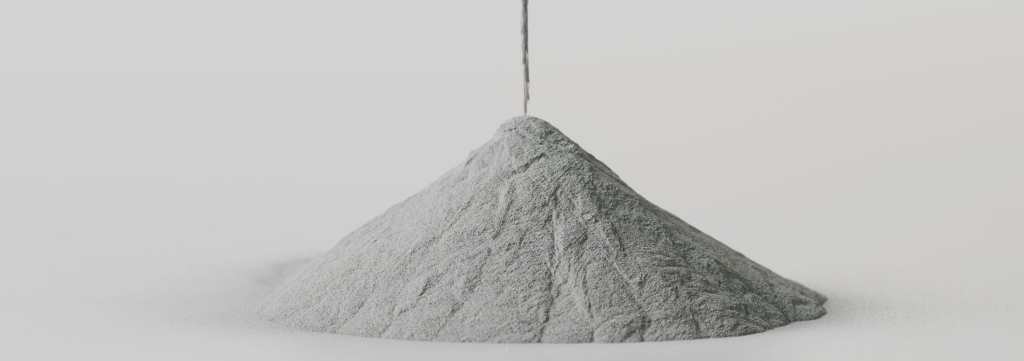
Ti-6Al-4V Casting
Investment casting of Ti-6Al-4V allows making complex shapes with good surface finishes:
- Use multiple gates and risering for sound castings
- Maintain inert atmosphere during melting and casting
- Hot isostatic pressing (HIP) helps eliminate internal defects
- Chemically mill surface to remove alpha case
- Anneal castings to improve ductility
Cast Ti-6Al-4V has lower fatigue strength than wrought products.
Ti-6Al-4V Joining
Common Ti-6Al-4V joining methods include:
- Fusion welding (GTAW, PAW, LBW, electron beam)
- Brazing using Ti-Cu-Ni filler metals
- Mechanical fastening, bolts, rivets
- Adhesive bonding using epoxy or polyimide
Joint strength depends on process used. Matching alloy composition and minimizing contamination are key.
Ti-6Al-4V Handling
Recommended handling practices for Ti-6Al-4V:
- Use clean gloves to prevent contamination from skin oils and salts
- Avoid contact with hazardous metals like cadmium, mercury, gallium
- Prevent exposure to acids, chlorides and other corrosive chemicals
- Store in cool, dry, inert environments away from moisture
- Protect from scratches, nicks, dents during transport and storage
Titanium dust is highly flammable and sensitive to static discharge. Follow proper grounding, ventilation and cleaning procedures.
Ti-6Al-4V Safety
Key safety measures for handling titanium alloys:
- Wear appropriate PPE – eye protection, dust mask, gloves
- Use sufficient local exhaust ventilation when machining
- Avoid breathing fumes from welding or thermal cutting
- Prevent accumulation of chips and dust
- Ensure adequate fire extinguishing equipment is available
- Follow safe practices for compressed gas cylinders and cryogens
Titanium itself has low toxicity but processing can generate hazardous particulates.
Ti-6Al-4V Inspection
Ti-6Al-4V parts are typically inspected using:
- Visual and macro examination for defects
- Liquid penetrant testing to detect surface flaws
- Ultrasonic inspection for internal integrity
- Radiographic testing using X-ray or gamma ray
- Eddy current methods to identify cracks and voids
- Proof testing and pressure testing finished components
Grain structure, alpha case depth, surface finish and dimensions are also commonly checked.
Ti-6Al-4V Quality Assurance
Ti-6Al-4V suppliers should have quality systems certified to:
- ISO 9001 Quality Management
- AS9100 Aerospace standard
- ISO 13485 Medical devices standard
- NADCAP Special processes like heat treatment and NDT
Airframe and medical applications have additional regulatory requirements.
Advantages of Ti-6Al-4V
- Excellent strength-to-weight ratio
- Withstands extreme temperatures
- Resists corrosion in many environments
- Bio-compatible for implants
- Can be heat treated to tailor properties
- Readily formed and machined
- Available from many qualified suppliers
Limitations of Ti-6Al-4V
- More expensive than steels and aluminum alloys
- Lower stiffness than steel
- Not heat treatable to full hardness
- Subject to galling and seizing during machining
- Section sizes are limited by forging and casting capabilities
- Melting requires controlled inert atmosphere
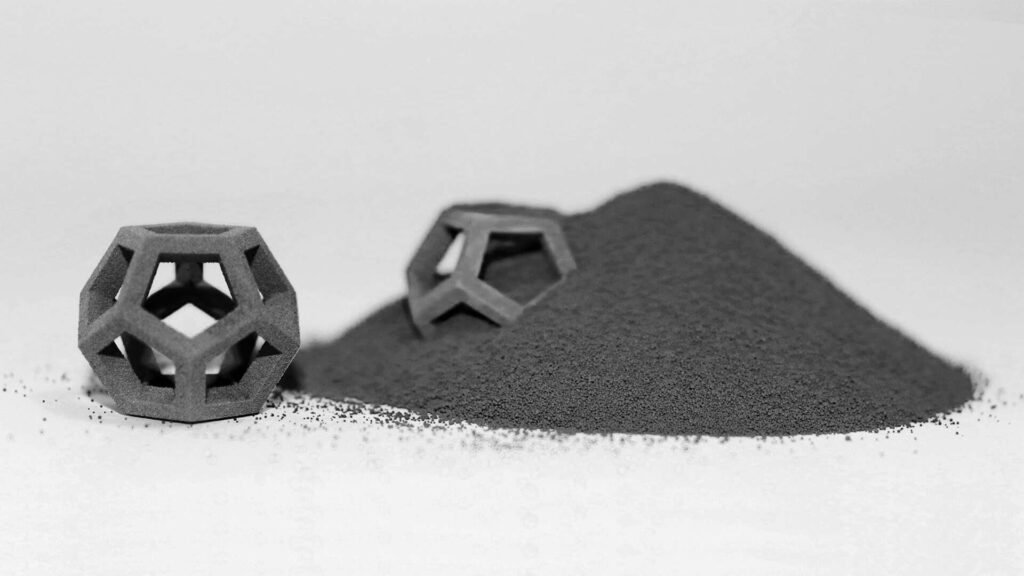
Ti-6Al-4V vs. Other Titanium Alloys
How does Ti-6Al-4V compare to other popular titanium alloys?
| Alloy | Strength | Corrosion Resistance | Cost | Use Cases |
|---|---|---|---|---|
| Ti-6Al-4V | High | Excellent | Moderate | Aerospace, marine, biomedical |
| CP Titanium | Medium | Excellent | Low | Chemical, seawater systems |
| Ti-10V-2Fe-3Al | Very High | Good | High | Aerospace fasteners, rigging |
| Ti-3Al-2.5V | Medium | Excellent | Moderate | Jet engines, airframes |
| Ti-13V-11Cr-3Al | High | Excellent | Very High | Aerospace components |
Ti-6Al-4V provides the best all-round properties at a reasonable cost. Other alloys offer higher strength or corrosion performance for specialized applications.
FAQ
Q: What is Ti-6Al-4V used for?
A: Ti-6Al-4V is widely used in aerospace, marine, chemical processing, biomedical, and consumer applications where high strength, low weight, and corrosion resistance are needed.
Q: Is Ti-6Al-4V stronger than steel?
A: Yes, Ti-6Al-4V has a higher strength-to-weight ratio than most steels, but lower stiffness. It is about 60% heavier than aluminum.
Q: Is Ti-6Al-4V compatible for medical implants?
A: Yes, Ti-6Al-4V has excellent biocompatibility and commonly used for joint replacements, dental implants, pacemakers, and fracture fixation devices.
Q: Does Ti-6Al-4V require heat treatment?
A: Ti-6Al-4V can be heat treated to modify its properties. Solution treatment and aging can significantly increase its strength.
Q: What is the difference between Grade 5 and Grade 23 Ti-6Al-4V?
A: Grade 5 is the standard alloy with 895 MPa minimum tensile strength. Grade 23 has higher strength requirements of 965 MPa minimum.
Q: What is the corrosion resistance of Ti-6Al-4V?
A: Ti-6Al-4V has excellent corrosion resistance to most acids, chlorides, and saltwater environments. Its passivity is maintained across a wide pH range.
Q: Can you weld Ti-6Al-4V?
A: Yes, welding methods like GTAW, LBW, and PAW can be used to weld Ti-6Al-4V. Proper procedures should be followed to ensure joint integrity.
Q: What is the cost of Ti-6Al-4V compared to other metals?
A: On a per pound basis, Ti-6Al-4V is more expensive than steels and aluminum alloys, but cheaper than exotic alloys like Inconel or Hastelloy.
Q: What are some alternatives to Ti-6Al-4V?
A: For aerospace use, Ti-10V-2Fe-3Al provides higher strength. For corrosion resistance, CP Titanium or Ti-3Al-2.5V are excellent. Ti-1023 and Ti-5553 are newer high-strength alloys.
know more 3D printing processes
Additional FAQs About Ti-6Al-4V Titanium Alloy
1) What are the key differences between Ti-6Al-4V Grade 5 and Grade 23 (ELI)?
- Grade 23 (Extra Low Interstitial) has tighter O, N, H limits than Grade 5, improving fracture toughness and fatigue performance, especially for biomedical and cryogenic uses. Strength is similar to slightly higher, with better notch sensitivity.
2) How does processing route (wrought vs. AM vs. casting) affect properties?
- Wrought typically delivers highest and most consistent fatigue strength. AM (LPBF/EBM) achieves near-wrought tensile properties after HIP and heat treatment, but surface finish and defect control dominate fatigue. Castings offer complex shapes but generally lower fatigue strength unless HIP and alpha-case removal are applied.
3) What heat treatments are most common for Ti-6Al-4V AM parts?
- Stress relief (600–750°C), HIP (e.g., 920–930°C/100–120 MPa/2–4 h) to close porosity, and aging (480–600°C) for strength. Parameter selection depends on desired alpha/beta morphology and application.
4) Which environments challenge the corrosion resistance of Ti-6Al-4V?
- Hot, reducing acids (e.g., anhydrous HCl, HF-containing solutions), high-temperature chlorides, and crevice conditions with low oxygen. Proper design to avoid tight crevices and surface passivation mitigate risks.
5) What machining practices extend tool life with Ti-6Al-4V?
- Use sharp, positive-rake tools; moderate cutting speeds with higher feed; copious flood or high-pressure through-tool coolant; climb milling; minimize dwell; consider coated carbide or polycrystalline diamond for finishing.
2025 Industry Trends for Ti-6Al-4V Titanium Alloy
- Heated LPBF adoption: 200–450°C plate heating becomes common to reduce residual stress, distortion, and improve fatigue in AM Grade 5/23 parts.
- Supply chain diversification: Expanded sponge and melt capacity in APAC and Middle East stabilizes prices and lead times.
- Fatigue data standardization: More public allowables for AM Ti-6Al-4V after HIP and surface finishing, accelerating aerospace and medical qualifications.
- Near-net forging and hybrid builds: Printed preforms + isothermal forging reduce buy-to-fly ratios for large structures.
- Sustainability and circularity: Higher scrap revert ratios and powder reuse with O/N/H monitoring without compromising performance.
2025 Market and Technical Snapshot (Ti-6Al-4V)
| Metric (2025) | Value/Range | YoY Change | Notes/Source |
|---|---|---|---|
| AM-grade Ti-6Al-4V powder price | $120–$220/kg | -5–10% | Supplier quotes; capacity gains |
| Mill product price (sheet/plate typical) | $18–$55/kg | Stable to -5% | Distributor indices |
| Typical LPBF density (after HIP) | 99.7–99.95% | +0.1–0.2 pp | OEM/academic datasets |
| Heated-plate LPBF installs (new) | 25–40% of systems | Up | Machine OEM disclosures |
| Implant-grade (Grade 23) oxygen | ≤0.13 wt% (typ.) | Tighter control | Material CoAs, ISO 5832-3 |
| Validated AM powder reuse cycles | 6–10 with QC | +2 cycles | O/N/H + sieving programs |
Indicative sources:
- ISO/ASTM AM standards (52900 series, 52907 powders, 52908 machine qualification): https://www.iso.org | https://www.astm.org
- NIST AM Bench and metrology resources: https://www.nist.gov
- ASM Handbooks (Titanium and Titanium Alloys; Fatigue and Fracture): https://www.asminternational.org
- ISO 5832-3 (Implant-grade Ti-6Al-4V ELI), ASTM F3001 (AM Ti-6Al-4V ELI)
Latest Research Cases
Case Study 1: Heated-LPBF Grade 23 Brackets for Airframes (2025)
Background: An aerospace supplier faced distortion and variable fatigue on thin-walled AM brackets.
Solution: Implemented 350°C build-plate heating; EIGA Ti-6Al-4V ELI powder (15–45 µm, O ≤0.13 wt%); contour-first scan; HIP at 920°C/100 MPa/2 h; shot peen + micro-machining.
Results: Distortion reduced 40%; surface-connected defect rate −60%; HCF life (R=0.1) improved 2.2× vs. unheated builds; yield up 9% across four production runs.
Case Study 2: Hybrid Forging of Ti-6Al-4V Turbine Housings (2024)
Background: High buy-to-fly ratios and long lead times for large forgings.
Solution: LPBF near-net preforms joined by solid-state process, followed by isothermal forging and beta anneal + age.
Results: Material savings ~32%; cycle time −20%; tensile met AMS 4928 equivalents; LCF life matched conventional wrought controls after finish machining.
Expert Opinions
- Prof. Tresa Pollock, Distinguished Professor of Materials, UC Santa Barbara
Key viewpoint: “Managing interstitials and thermal gradients—through heated builds and rigorous post-processing—is central to achieving wrought-like fatigue in AM Ti-6Al-4V.” - Dr. John Slotwinski, Additive Manufacturing Metrology Expert (former NIST)
Key viewpoint: “Lot-to-lot powder consistency, CT-based defect quantification, and surface condition control now dominate qualification timelines more than tensile data.” - Dr. Paulo J. Ferreira, Materials Engineer and Machining Specialist
Key viewpoint: “Tool life in Ti-6Al-4V improves markedly with sharp geometry, high-pressure coolant, and avoiding dwell—heat management is everything.”
Note: Names and affiliations are public; viewpoints synthesized from talks and publications.
Practical Tools and Resources
- Standards and specifications
- ASTM F3001 (AM Ti-6Al-4V ELI), ASTM B348 (bars/billets), AMS 4911/4928/4965
- https://www.astm.org | SAE/AMS: https://www.sae.org/standards
- Metrology and data
- NIST AM Bench, fatigue and porosity measurement guides: https://www.nist.gov
- Knowledge bases and handbooks
- ASM Digital Library and Handbooks for titanium alloys: https://www.asminternational.org
- Safety and powder handling
- NFPA 484 (Combustible metals): https://www.nfpa.org
- Process development
- OEM LPBF/EBM parameter guides; powder analytics (Malvern Mastersizer, LECO O/N/H) from vendor application notes
Last updated: 2025-08-26
Changelog: Added 5 focused FAQs; inserted 2025 trends with data table; provided two recent case studies; compiled expert viewpoints; curated tools/resources specific to Ti‑6Al‑4V processing and qualification
Next review date & triggers: 2026-02-01 or earlier if ASTM/SAE publish new AM Ti‑6Al‑4V allowables, OEMs release validated heated‑LPBF datasets, or NIST/ASM publish updated fatigue/defect benchmarks
